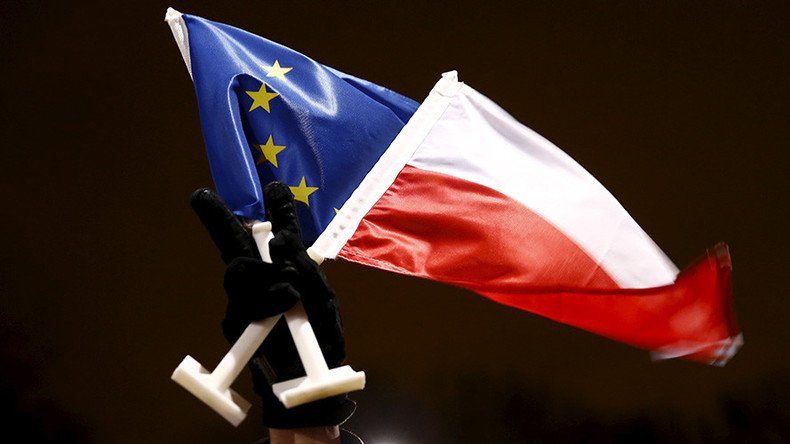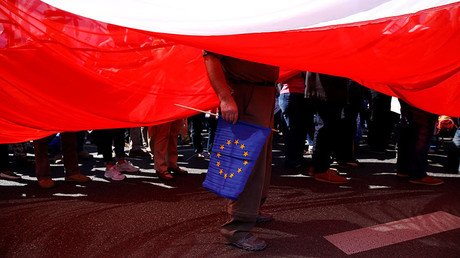‘EU membership for Poland is rather like a teaser rate on a bad loan’

Brexit, the near victory of Marine Le Pen in the French presidential election, rumblings in Italy – it is all a sign the EU system is not working, and Poland might be wise to reexamine the EU, Steve Keen, professor of Economics at Kingston University, says.
Poland and the EU probably don’t need each other, according to European Council chief Donald Tusk.
“There is a question mark over Poland’s European future today,” the former Polish prime minister said at a press conference in Warsaw on Thursday.
The follows last month’s approval by the Polish parliament of controversial reforms to the judiciary, handing the government control over the country’s courts, and the EU’s threats to strip Poland of voting rights.
RT: So can we take this as a Polexit?
Steve Keen: I think it is a sign that the EU is not working, and that is what’s not getting through to Brussels at all. There wouldn’t be the clamoring for exit from the UK. There wouldn’t be the potential, very recent, almost victory of Marine Le Pen; all the rumblings in Italy – it is all a sign the system is not working. This is something fundamental at the core of the European Union that is leading people to either want to leave or not join. And it is still not getting through to Brussels… that this is their problem, their failure that’s causing all these eruptions around their borders.
RT: Poland has benefited hugely from its membership in the Union, as it has been on the receiving end of billions in funds, its economy has enjoyed a huge boost. What would it mean for the country if it left the bloc?
SK: Not a lot, because, again, the EU is contractionary… If you look at what their actual objectives were on the Maastricht Treaty, it was to have governments spend less money every year to try to run a surplus… if you spend less money – surprise, surprise – your economy shrinks. What happens as often there seem to be carrots to attract you into the EU first instance – but it’s the fundamental guiding policy of cutting spending every year that actually leads to a contracting economy, and people, once they’re in, they want to get out again. So I think Poland might be very wise to say to say, “this doesn’t look like such a good deal in the long term.”
Polish loggers beat TV operator & damage equipment in forest at center of EU-Poland row https://t.co/ynYBw6u1bxpic.twitter.com/XauUF4zb1I
— RT (@RT_com) 30 июля 2017 г.
RT: Do you think that the EU is making an effort to hang on to Poland in fear that other countries might follow suit?
SK: I think they will, but what we really need to do is to say: “Let’s get down and reconsider what on Earth we were trying to achieve in the EU in the first place, and why is it being so unsuccessful?" Why is it only benefitting in the northern states, which have got enormous trade surpluses, while the southern ones are suffering with trade deficits and all the contraction that forces upon them? When you look at it in that way and say, “we have to reconsider the entire structure of the EU,” maybe we should even let the parliamentarians propose bills, which, of course, the EU is the only parliament that doesn’t allow that. So it is a time for a fundamental reexamination of the EU. If this message doesn’t get through to parliament, well… who’s next? Italy?
The statements, views and opinions expressed in this column are solely those of the author and do not necessarily represent those of RT.













